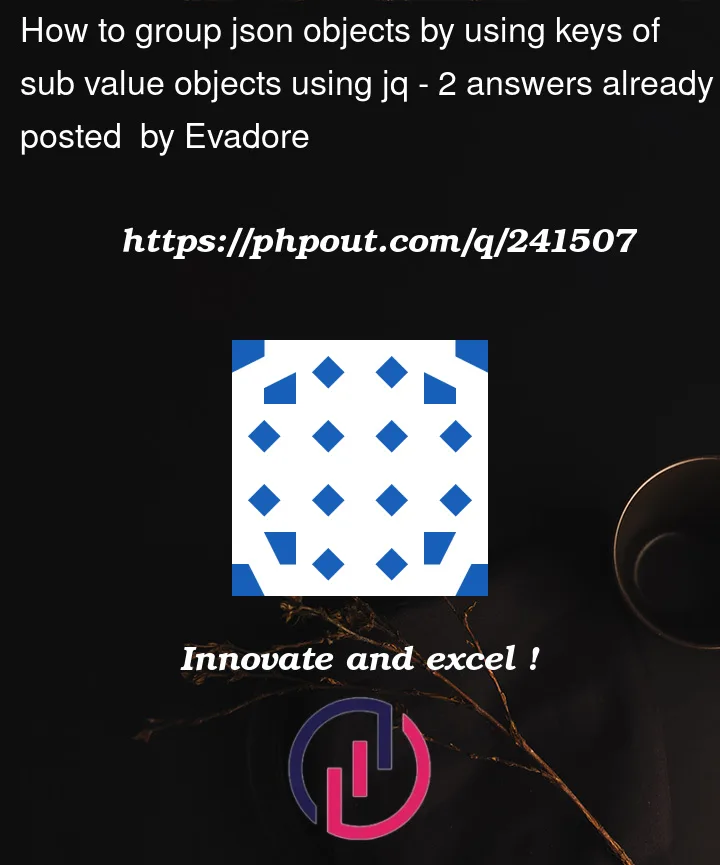I have a json file in the format
{
"hello": [
{
"name": "var1",
"value": "1234"
},
{
"name": "var2",
"value": "2356"
},
{
"name": "var3",
"value": "2356"
}
],
"hi": [
{
"name": "var1",
"value": "3412"
},
{
"name": "var2",
"value": "2563"
},
{
"name": "var3",
"value": "4256"
}
],
"bye": [
{
"name": "var1",
"value": "1294"
},
{
"name": "var2",
"value": "8356"
},
{
"name": "var3",
"value": "5356"
}
]
}
I want to convert this object into this format
{
"output": [
{
"var1": {
"hello": "1234",
"hi": "3412",
"bye": "1294"
}
},
{
"var2": {
"hello": "2356",
"hi": "2563",
"bye": "8356"
}
},
{
"var3": {
"hello": "2356",
"hi": "4256",
"bye": "5356"
}
}
]
}
so far i’ve tried multiple ways using to_entries and map functions in jq to create the contents inside the output variable
jq 'to_entries | map(.value[]| . += {"key_v" : (.key)} )' input.json > output.json this is the closest i came to a solution
- extracting keys and add to the key value pair of the object
- use map(select()) to group by keys
but i am getting errors in both the steps such as cannot index array with string name or string value.




2
Answers
A simple solution is readily obtained if the following stream-oriented "coalesce" function is used:
The solution is now simply:
It doesn’t win a beauty contest, but it works:
With a single call to
with_entries:Output: